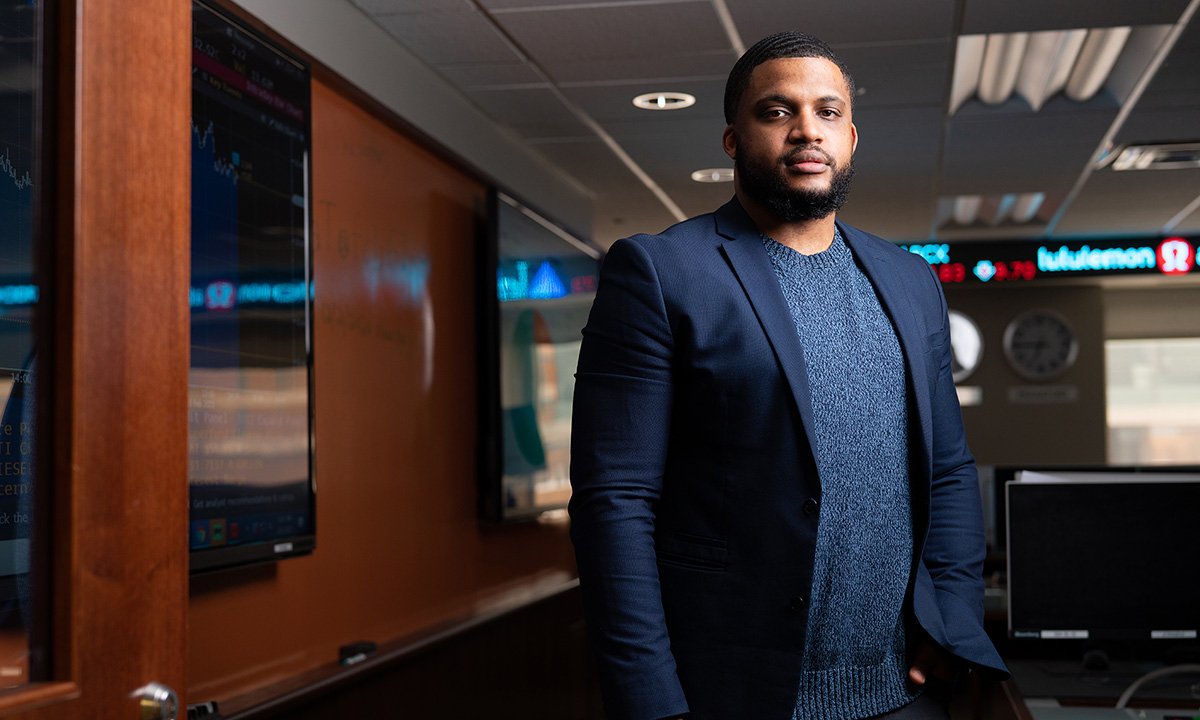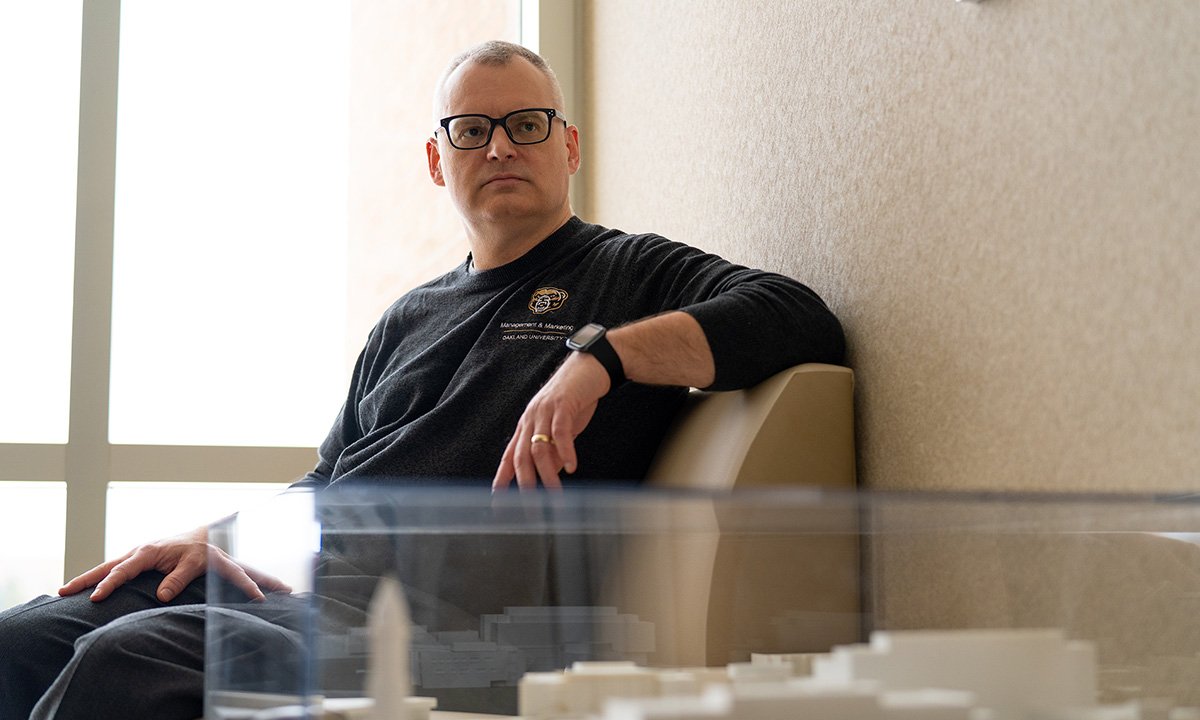25 Years of Advancing Careers
EMBA program helps experienced professionals balance work and studies
For the past 25 years, Oakland University's Executive MBA (EMBA) program has helped 300 experienced professionals to advance in their fields without sacrificing career responsibilities. Every aspect of the EMBA program is tailored to make it as easy as possible for students, who must have at least five years' professional work experience, to earn their MBAs while maintaining a full-time work schedule. Classes are held every other weekend for 21 months, and a concierge service provides textbooks and meals for students. Tight-knit cohorts of students work with accomplished professors who endeavor to make coursework as relevant as possible to students' professional experience.
"Our primary focus is supporting student success," says Teri Abbo-Sutherland, director of executive programs in OU's School of Business Administration. "We understand that our students are high achievers who are purposeful in attending the program. We are here to deliver excellence in support and service to ensure that they achieve both the promotions and additional responsibilities that they are aspiring to.
Abbo-Sutherland notes that the program provides considerable value to local employers, as 97% of employed OU graduates continue to work in Michigan.
"Business organizations are relying on us to develop the talent, and we're relying on them to sponsor their trusted advisors to learn business acumen and leadership development in this program," she says. "The goal is really to ensure prosperity and sustainability into the future."
The benefits for EMBA students are considerable. After completing the program, 58% of EMBA graduates receive promotions or are recruited by new employers. Graduates receive an average salary increase of $36,000 per year. We connected with four EMBA alumni who have experienced significant professional and personal growth since completing the program.
Adam Crumpton | Dr. Michael Jacobs | Weston Lee | Sabah Naseer
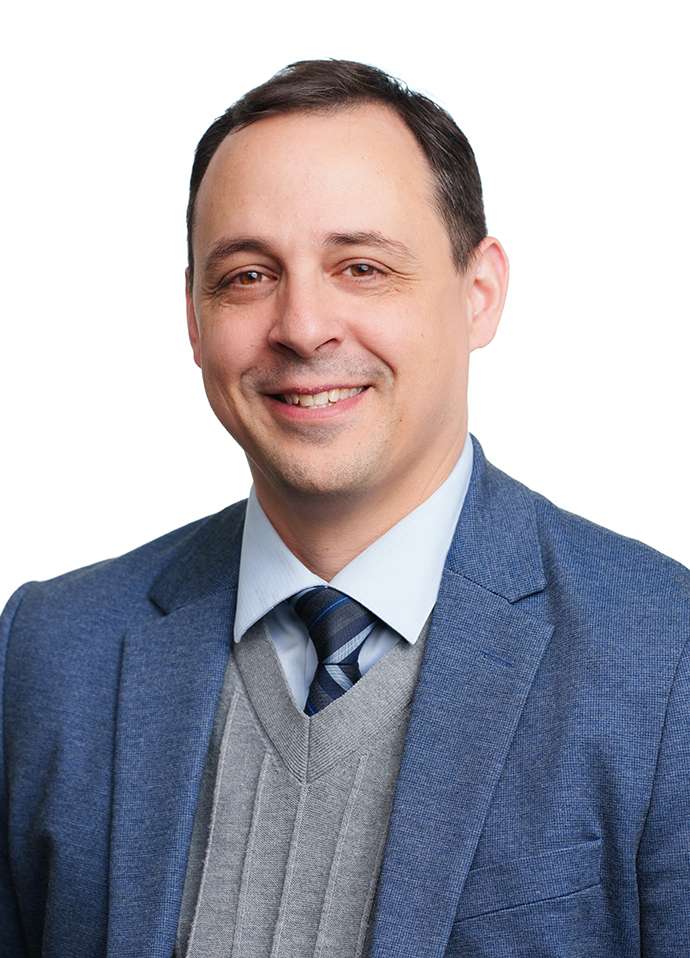 |
|---|
Ten years ago, Adam Crumpton had no postsecondary education and was operating a CNC machine on a shop floor. Although he had no greater ambitions at the time, he vividly recalls an "old-timer" in the shop encouraging him to go to college.
"He was like, 'The time's going to go by either way,'" Crumpton says. "And that just kind of stuck in my head."
Crumpton has been in school continuously since then, attaining a bachelor's degree, then a master's degree, and advancing in his career from machine operator to quality assurance manager. But even then, he says he was "plateauing," and the EMBA program was the perfect next step in his professional advancement.
Working 60 to 70 hours a week and raising four kids, Crumpton says he loved the way the program "made it very easy to be successful" and focus on learning. He was pleasantly surprised to find that the program's first semester focused primarily on leadership and soft skills.
"If we had started with managerial accounting or something, maybe I could understand the P&L, but it wasn't as practical," he says. "How do you carry yourself? How do you assess a situation? How do you deal with conflict? That whole mindset of executive voice, executive presence, and strategic leadership was really, really helpful at the beginning."
Crumpton completed the EMBA program in April 2025, and in the same month he was promoted from quality assurance manager to area quality assurance manager. He credits the way the EMBA program helped him to better understand his work from an executive perspective.
"I have way more confidence and I'm way more poised," he says. "My voice is much clearer now when I go into a room or go into a meeting or have to talk to someone."
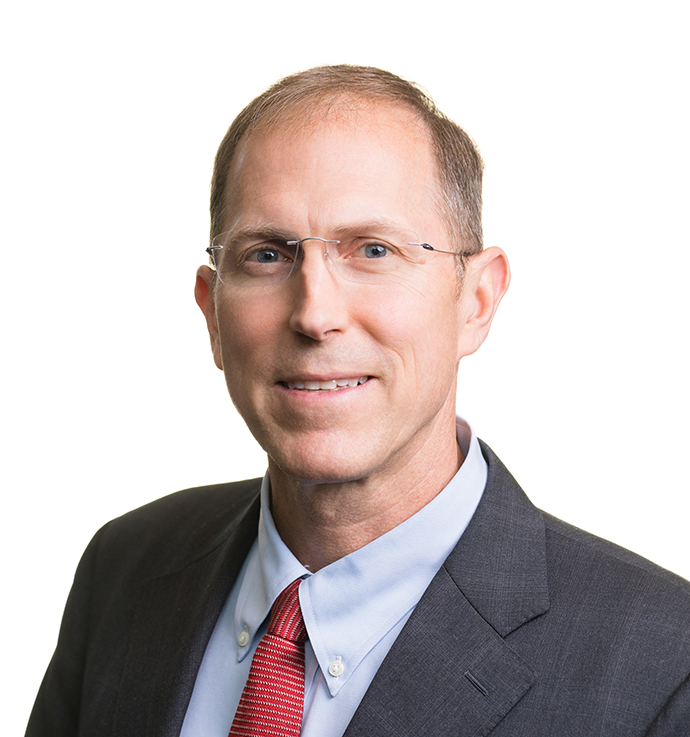 |
|---|
Dr. Michael Jacobs entered the EMBA program in 2022 as a successful surgeon and inventor of the Jet Multi-Instrument Safety Holster, which safely holds sharp or high-energy surgical tools. But he had his eye on the chair position in the surgery department at Henry Ford Health Providence's Southfield and Novi hospitals, and he wanted to introduce his invention to the international market. He says the EMBA program was "a perfect fit" to help him achieve both goals.
"On average, I will put in well over 70 hours of work per week, including at home and on the weekends," he says. "I came to the point where I absolutely looked forward to those two days off from my regular schedule to work on the MBA."
Jacobs says the program "hit every bullet point that I needed." He says he valued learning "not just about myself, but dealing with others – managing complex problems and having complex conversations with people." He also gained invaluable knowledge of finances, marketing, and international trade, thanks to the dedication of his EMBA instructors. He recalls his accounting instructor, Donna Free, staying after class with him and a half-dozen other students who were preparing for an upcoming exam and project.
"She spent four hours with us, from 6 p.m. until 10 p.m., until we understood the concepts cold," Jacobs says. "I had never experienced anything like that."
Shortly after graduating from the EMBA program in 2024, Jacobs got the surgery chair job he'd been seeking. He says he's "very confident" that his MBA was a contributing factor. He's also in the process of introducing the Jet Multi-Instrument Safety Holder to the Indian market, which he also attributes partly to the skills he learned from the EMBA program. He says the program was an "ideal" way to advance his career.
"I think my only mistake is that I didn't do it 20 years ago," he says.
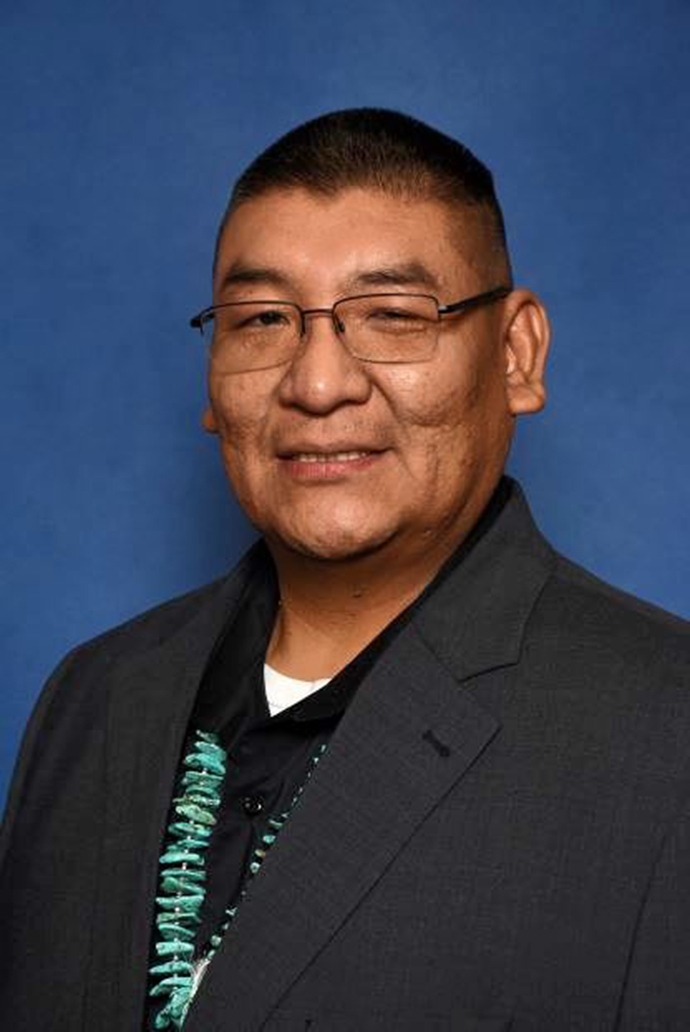 |
|---|
Weston Lee says he came to the EMBA program as a result of a "failed interview." Having spent over a decade in engineering roles at Stellantis/Fiat Chrysler Automobiles, he wanted to take the next step into a management job. But when he was interviewing for such a role, he says, "the person doing the interview kept telling me, 'Wes, answer the question as a leader, not as an engineer.' I really didn't know what he meant."
Lee says that experience "motivated" him to learn more about leadership and business acumen, and he found what he was looking for in the EMBA program.
"The experience was transformative," he says. "Learning alongside other experienced professionals created an environment where we could share ideas and challenge each other. The faculty brought practical insights, and the coursework directly tied into what I do every day, whether that’s managing complex vehicle programs, optimizing cost, or resolving field issues."
Lee particularly appreciated the opportunity to work with EMBA executive coaches, such as a high-level C-suite executive at another automaker.
"My path is the path that he endured," Lee says. "So he knew some of the challenges that I faced and some of the ways to get around those. He was like a personalized teacher."
Before he even graduated the EMBA program in April 2025, Lee was promoted to a dual role as technical program manager and project quality manager at Stellantis. He says the skills he developed through the EMBA program helped him answer interview questions for that job as a leader.
"Whether I’m leading a vehicle launch, presenting to senior leadership, or driving quality initiatives, I use the frameworks and skills I gained in the EMBA," he says. "It’s made me a more confident and well-rounded leader."
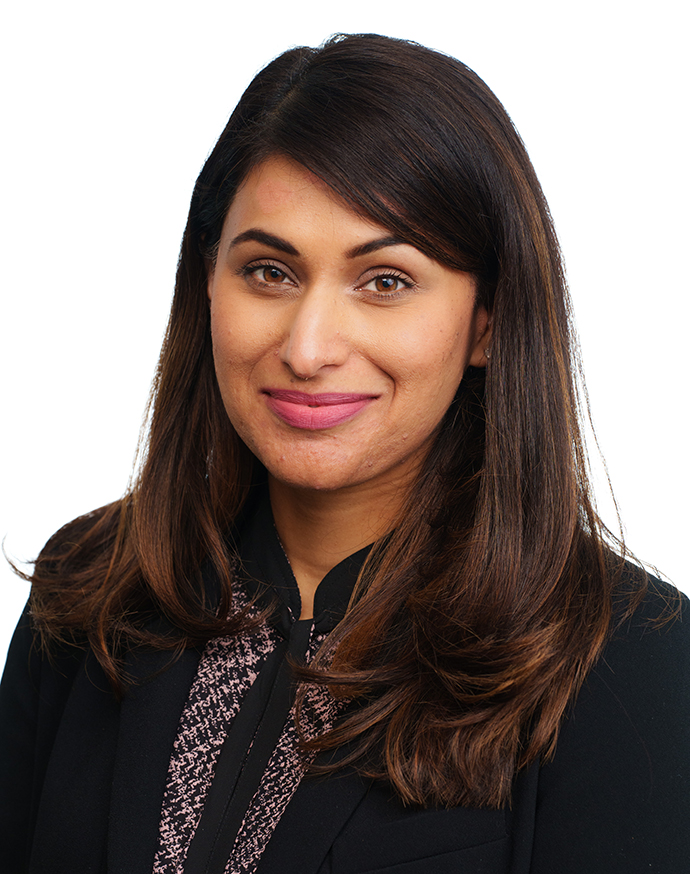 |
|---|
Sabah Naseer says she was "very nervous" when she started the EMBA program. As a risk quality assurance and compliance lead at General Motors, she'd always wanted to pursue an MBA to help her advance into a management position. But it had been over 15 years since she'd completed her undergrad studies, and she'd started a family in the meantime. However, her kids were old enough that she felt it was time to follow through on her dream.
Naseer says she'd expected an overly hectic schedule and an experience similar to her undergrad studies, but her EMBA experience defied those expectations. She says the program's structure made it "manageable" to juggle work and class. She was also pleased to be studying among a cohort of fellow professionals, with classwork that focused on real-world applicability. For example, even as a certified public accountant, she was surprised at how much she learned from her EMBA accounting class.
"You get that high-level view," she says. "You're not in the weeds. You're really looking at it from the perspective of what executives look at when they're thinking about accounting."
Naseer says her most impactful classes were focused on psychology, allowing her to evaluate herself, better understand others, and develop her leadership style. She graduated the program in 2025 and credits her MBA for her recent in-place promotion to supervisor of treasury accounting at GM. She says her experience in the program was not just about a promotion, but also self-growth.
"I think the program allowed me to think not just about how I want to be as a leader, but how I want to be as a person," she says. "And that falls into all areas of life – what kind of person I want to be to my kids, to the community, and the workplace. I feel like the program is well rounded. I wanted to do my MBA, but I didn't realize how much it would help me grow as a person as well."
"I think the program allowed me to think not just about how I want to be as a leader, but how I want to be as a person," she says. "As a mother, mentor, and community contributor, the program reshaped how I lead in every part of my life – at home with my children, in service to my community and as a leader within the workplace. My time in the program not only enhanced my strategic thinking skills but also reinforced my values. I expected professional growth. What I didn’t anticipate was the depth of personal transformation.”

 August 13, 2025
August 13, 2025
 By Patrick Dunn
By Patrick Dunn